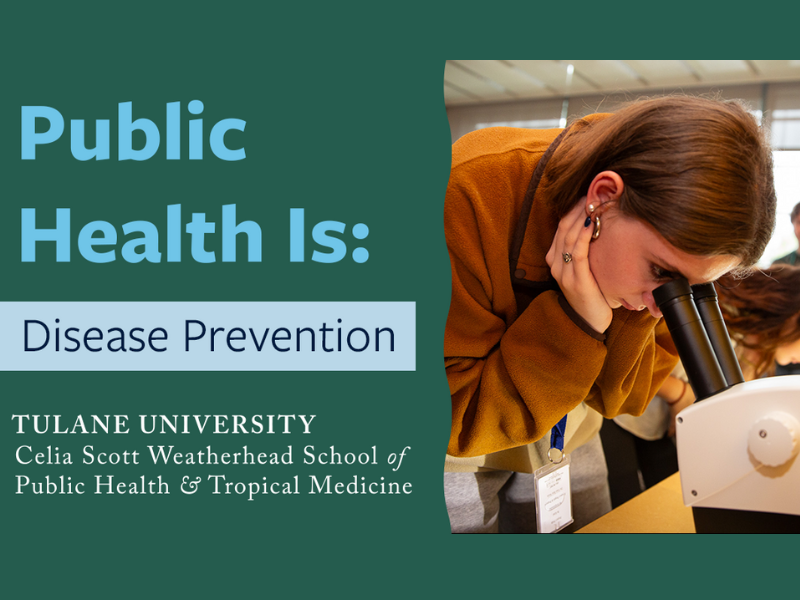Tulane Launches “Public Health Is…” Awareness Campaign
Tulane’s Celia Scott Weatherhead School of Public Health and Tropical Medicine has launched a new public awareness campaign to spotlight the essential role public health plays in helping people live longer, healthier lives.
Titled “Public health is…”, the campaign explores how the field protects communities—from preventing cancer and infectious disease to preparing for disasters and safeguarding worker health. The campaign website features a dynamic pictorial grid of key topics, with more to be added as the campaign unfolds.
“Public health is apolitical.” says Dean Thomas A. LaVeist. “Public health professionals don’t enter the field to become wealthy or to seek the spotlight. These are people who want to help all of us live healthier. Most of the time, public health is invisible. You know it’s working when outbreaks don’t happen, when hospitals aren’t overwhelmed, and when dangerous exposures are prevented. Public health is the crisis that never happens.”
Partnering with the digital marketing agency Online Optimism, the school is sharing campaign messages on Instagram to showcase how public health impacts everyone, every day.
“Public health is especially needed in the South because the region faces some of the most persistent and deep-rooted health challenges in the United States,” adds LaVeist. “These challenges are shaped by a combination of historical, social, economic, and environmental factors.”
Tulane has long been a public health leader. The university was founded in 1834 in response to deadly epidemics like yellow fever and cholera. In 1912, it established the nation’s first school of public health—one that continues to address health issues both locally and globally. Today, the school is ranked in the Top 10 of peer schools and faculty lead interdisciplinary research focused on practical, data-driven solutions, while alumni hold leadership roles in government agencies, global companies, and grassroots nonprofits.
“Public health touches everyone,” LaVeist concludes. “It makes us stronger as a country and serves those most in need.”
Learn more at https://publichealthis.com.

